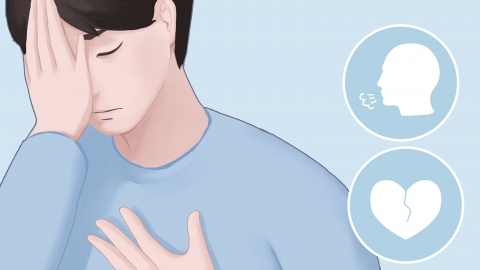What are the symptoms of depression?
Depression, as a common psychological disorder, is mainly characterized by symptoms such as low mood, cognitive slowing, lack of energy, sleep disturbances, and physical discomfort. A detailed analysis is as follows:

1. Low mood: Patients often experience persistent sadness and lose interest in life; activities they once enjoyed no longer bring pleasure. They may frequently feel self-blame and guilt, and in severe cases may develop feelings of hopelessness. Emotional responses become disconnected from the external environment.
2. Cognitive slowing: Thinking speed is significantly reduced, concentration becomes difficult, and memory declines, leading to frequent forgetfulness regarding daily tasks. Patients struggle to make decisions and experience impaired thinking, which affects work and study efficiency.
3. Lack of energy: Even without physical exertion, patients often feel extreme fatigue and bodily weakness. Simple daily activities such as dressing or washing up may seem strenuous. Movements become sluggish and initiative diminishes.
4. Sleep disturbances: Symptoms include difficulty falling asleep, light sleep, frequent awakening, or early morning awakening. Some patients, on the other hand, may experience excessive sleeping. Poor sleep quality further exacerbates fatigue, creating a vicious cycle.
5. Physical discomfort: Symptoms may include dizziness, headache, chest tightness, palpitations, and digestive issues such as loss of appetite or binge eating. Although medical examinations reveal no obvious organic abnormalities, these physical symptoms recur persistently.
The severity and duration of these symptoms vary from person to person. Timely recognition and appropriate psychological or pharmacological interventions can help alleviate symptoms and support patients in returning to normal life.






